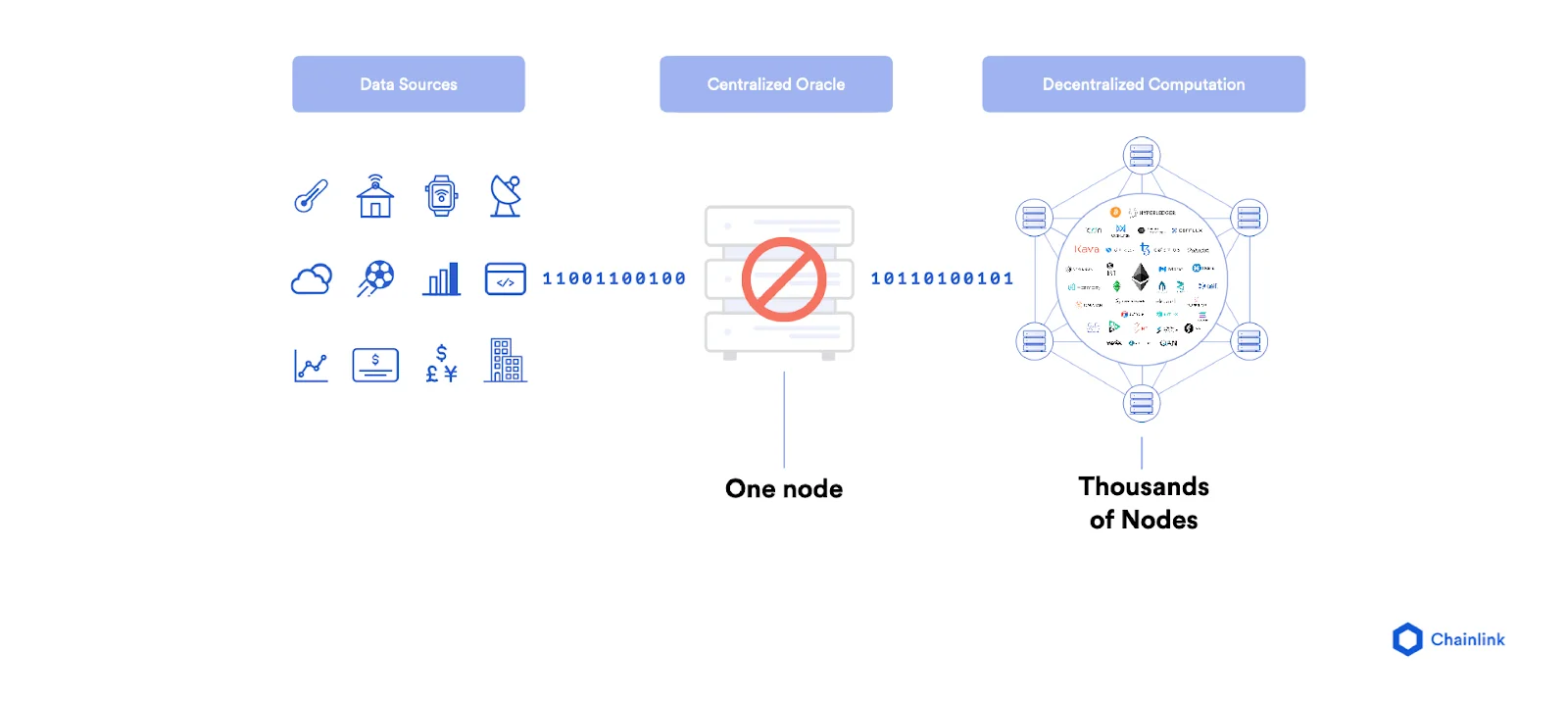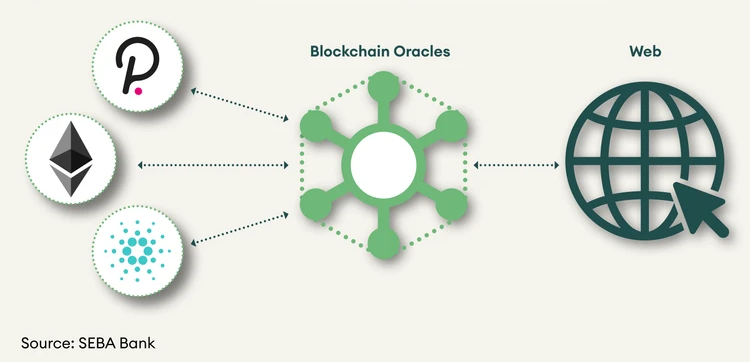Blockchain oracles are an important component of the blockchain ecosystem, especially in the area of smart contracts and decentralized finance (DeFi). They serve as a bridge between the blockchain and the real world, providing the data necessary to trigger smart contracts or validate transactions.
Blockchain oracles are third-party services that provide external information to smart contracts or a single source of truth. They serve as a bridge between blockchains and the outside world. Oracles are usually not standalone data sources themselves, but they verify and authenticate external data before it is used in a smart contract.
Blockchain Oracle Problem
The blockchain oracle problem refers to the security issues that arise when a central oracle provides data to a decentralized blockchain. If the central oracle is compromised, it could send faulty data to the blockchain, which in turn could compromise the integrity of the blockchain and the smart contracts based on it. This is a significant problem because the trustworthiness and security of the blockchain depends on the accuracy of the data received.

Decentralized oracles are a solution to the blockchain oracle problem. Instead of relying on a single, centralized oracle, smart contracts can use decentralized oracles to obtain data from multiple sources. This reduces the risk of tampering or error because the smart contract can be programmed to trigger an event only when the majority or all of the oracles provide the same data.
Role in crypto finance
In the world of crypto finance, oracles play a critical role in facilitating DeFi applications. They provide real data for price feeds, real events, and various other information. This data is used to trigger smart contracts, which are self-executing contracts where the terms of the agreement are written directly into the code. Without oracles, smart contracts would be limited to the information in the blockchain, severely limiting their potential.
In a multi-platform blockchain world, one or more decentralized Oracle solutions will connect blockchains to the Internet and to each other. This will allow information to be exchanged and accessed by a variety of applications. If blockchains were computers, oracles would be the modems that allow them to interact with the Internet and each other (see figure).

Blockchain oracles solve problems
Oracles also help solve problems with random numbers. Instead of the computing nodes generating random numbers separately, the oracle runs the random number simulation and publishes it on the blockchain. The computing nodes use this published number to produce the same result. In this way, block finality is achieved and the deterministic nature of the blockchain is maintained.
Software oracles are a type of oracle that provide digital information from the Internet for smart contracts on the blockchain. This information can come from various online sources such as websites, servers, databases and more. The data that software oracles provide often relates to real-time information that changes frequently, such as stock prices, exchange rates, cryptocurrency prices, and NFT prices. This data is critical for many types of smart contracts, especially DeFi applications.
Hardware oracles are a type of oracle that provide data from the physical world to the Blockchain. They use sensors and readers to collect data from the real world and transmit it to the Blockchain. This can include data from thermometers, RFID readers, barcode scanners, electronic sensors, and other IoT devices. Hardware oracles are particularly useful for integrating blockchain technology with the Internet of Things (IoT).
Functions of blockchain oracles
Input or inbound oracles send data from the outside world to a blockchain or smart contract. Most oracles currently in use are basically input oracles. Output oracles send information from a blockchain or smart contract to an external source. For example, an output oracle could trigger a real-world event, such as unlocking a hotel room, when a smart contract is fulfilled.
Cross-blockchain oracles focus on interoperability between different blockchains and, more recently, even to the traditional banking system. They enable users to develop applications and services that work across multiple platforms. Computational oracles perform complex calculations outside the blockchain and then send the results to the blockchain. This is useful for calculations that cannot be performed on the blockchain due to legal, financial, or technical limitations.
In addition, there are contract-specific oracles, which are designed to work with a specific smart contract. They are created from scratch to meet a very specific use case. Human oracles are individuals with specialized knowledge who provide information for smart contracts. Their reputation is a key factor that encourages them to provide accurate information.









